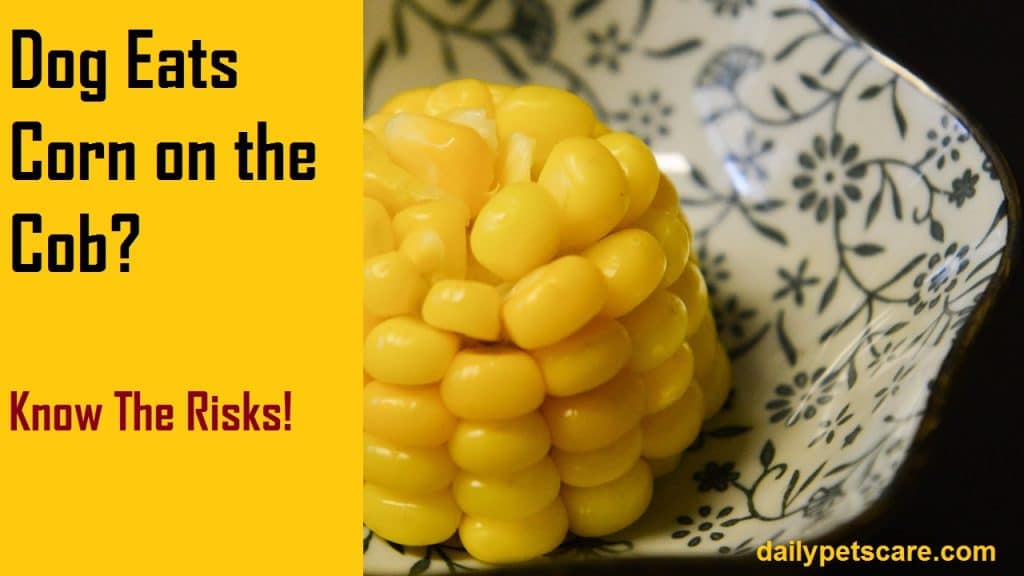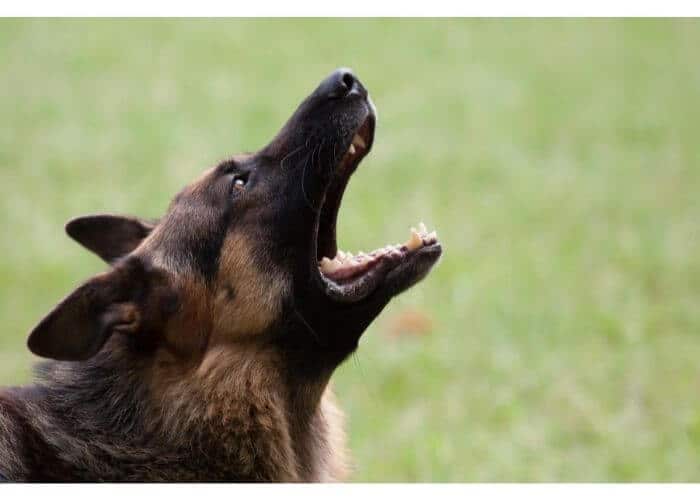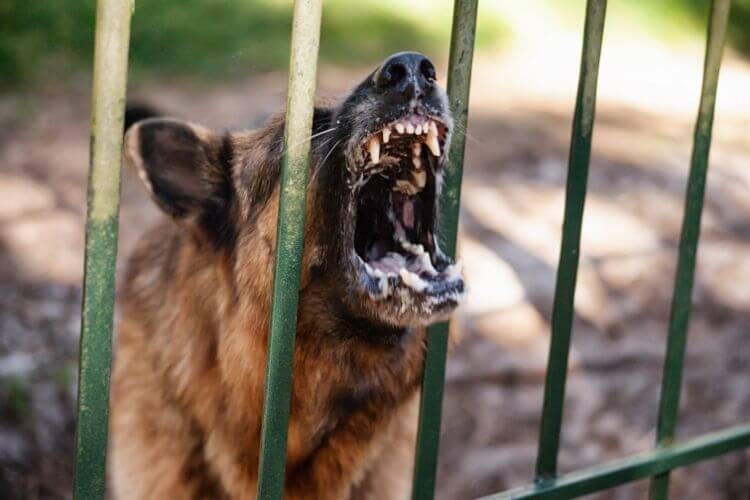Oh, how I love corn! It’s delicious, and I love eating it during my breakfasts. Corn is a great summer diet, too. But should I eat while my dog is helplessly watching? Can dogs eat corn (on or off the cob)?
Cooked corn is safe for dogs to eat in moderation. Many veterinary nutritionists say it provides dogs with carbohydrates, proteins, fiber, antioxidants, and linoleic acids, plus other essential fatty acids. However, corn cob is a choking hazard for dogs and could cause intestinal blockage.
Some of the symptoms of ingested cob in dogs are lethargy, repeated vomiting, dehydration, diarrhea, reduced activity, and loss of appetite.
Below, we shall look at which is the safest corn to give your dog, what amount is safe, and more. So, keep reading.
Can Dogs Eat Corn?
Yes, dogs can eat corn, but it must be properly cooked. Corn contains helpful nutrients for dogs, such as linoleic acid, protein, fiber, fat, carbohydrates, and potassium. Corn is also rich in vitamins K, B, E, and C.
Whether you classify it as a veggie, grain, or (as the botanists say) fruit, the health benefits of corn to dogs are numerous.
As mushrooms are good for dogs when cooked without any additives or seasonings such as salt, so is corn. So, avoid adding garlic, butter, onions, and other ingredients.
Do Dogs Eat Cooked Corn?
Yes, dogs eat cooked corn. Actually, properly cooked corn is better for dogs than raw corn. According to the Veterinary nutritionist and clinical officer of nutrition at Cummings School of Veterinary Medicine (Tufts University), Lisa Freeman, properly cooked corn is best for dogs.
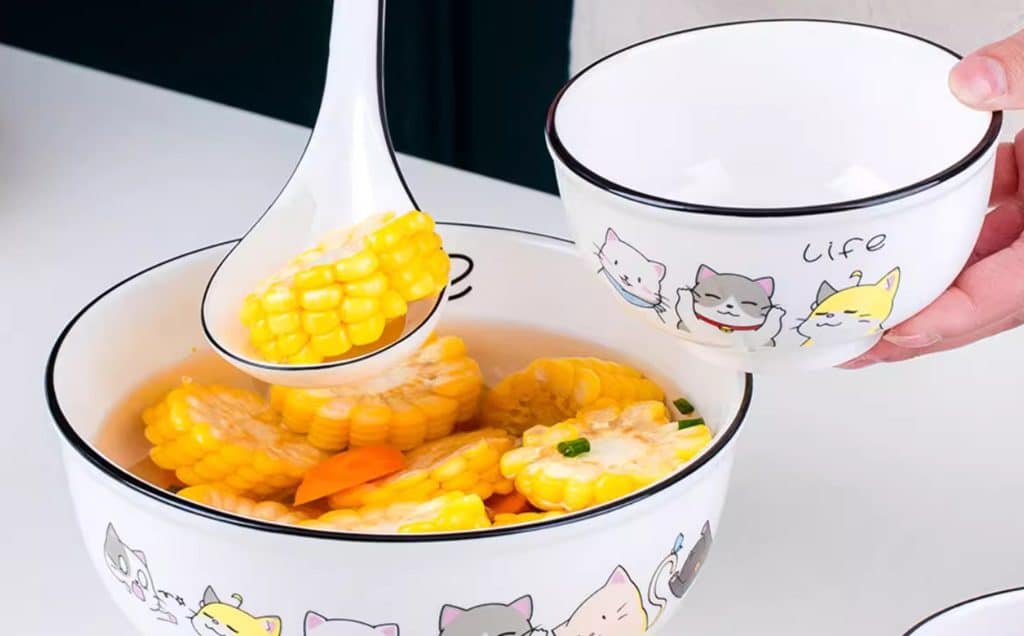
According to Lisa, dogs and cats metabolize and digest the grains effectively when they’re well-cooked.
Cooked corn is also a great natural antioxidant-dense grain.
What Happens if My Dog Eats Corn on the Cob?
When your dog eats corn on the cob, he will choke! Besides, though they’re non-toxic, dogs cannot digest corncobs easily. Hence causing bowel obstruction.
You can tell that your dog has an obstruction if you notice any of the following:
- Diarrhea
- A lack of appetite
- Dehydration
- Constipation
- Vomiting
- Lethargy
- Bloated stomach
- Abdominal pain
In case your dog accidentally ate a corn cob, never induce vomiting unless the vet recommends so. The veterinarian is to determine the best course of action based on the size of the cob, your dog’s size, the cob’s effects on the dog, and how long since he ate the cob.
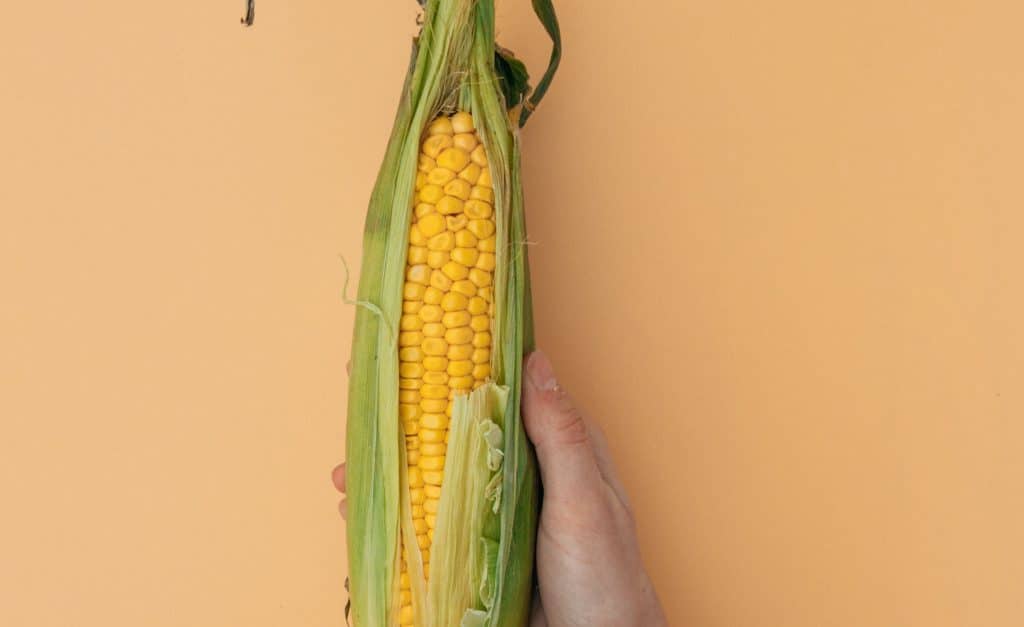
Based on these factors, your vet could suggest an emergency surgery to remove the cob, ask you to induce vomiting, or take other actions as deemed best.
Just like dogs could die when they eat avocado seed, so is corn cob. Therefore, as soon as you’ve learned that your dog has just eaten cob, call your vet.
Corn husks are also dangerous for dogs as they’re indigestible and are a choking hazard. So, if caught your dog eating corn husks, call the vet immediately and share the details.
Can Dogs Eat Cooked Sweetcorn?
Yes, dogs can eat cooked sweetcorn; it’s a great veggie for them. When dealing with dog food, the rule of thumb is that you should never add any flavors or seasonings, such as salt, when cooking.
When you cook sweetcorn for your dog, the antioxidant levels increase, which makes it a more nutritious treat.
Though cooked sweetcorn isn’t high in sugar like watermelons, it still has a bit of it that could cause problems in dogs if ingested in high amounts.
What Kind of Corn Is Bad for Dogs?
Though unflavored corn is great for dogs, some kinds of corn could be bad and toxic for dogs.
Canned Corn
As with every other canned food, preservatives, seasonings, and seasonings may be added. This makes canned corn a threat or a toxin for your dog.
For example, canned corn could have an ultra-high sodium level, which could cause kidney and dehydration problems in dogs.
A veterinarian, Dr. Sarah Ochoa, at the Animal Hospital of Wet Monroe, says canned corn is also a threat because it could have sugar or an artificial sweetener such as xylitol, which is a dangerous toxin.
Though dogs eat canned corn, it MUST be free of preservatives, seasonings, and flavors.
Corn Syrup
Though corn syrup is safe for dogs, it could be a toxin due to its high sugar content. So, avoid giving healthy dogs this syrup as it could make them obese or cause other problems such as hyperglycemia or heart disease.
Even so, for dogs with low blood sugar (hypoglycemia), your vet might advise giving them corn syrup.
Cornmeal
Though cornmeal isn’t packed with many beneficial nutrients for dogs, most dog food companies use cornmeal as a filler ingredient.
Wait, I have a bonus for you! The Best Fork In The Road Foods. Your holiday cannot be the same!
However, wise dog owners don’t buy these products because cornmeal is also hard to digest.
Cornflakes
Though a bite or two won’t hurt your dog, a high amount of cornflakes could cause problems in your dog. This is because cornflakes are high in sugar and carbohydrates. And though dogs eat sugar contained in fruits and other foods, high amounts will always be dangerous.
I may not even recommend cornflakes for dog treats because they have low nutritional value for your dog.
So, avoid them, and if your dog ingests a high amount, contact the vet.
Grits
Your dog may have a small amount of plain grits, but there are no great nutritional health benefits for him from these treats.
Low in protein and high in carbs, grits could be an unhealthy option for all dogs.
How Much Corn Can a Dog Eat?
Too much of any dog treat is deadly, and so is corn. Dogs should never eat more than 10% of their recommended daily calorie intake.
Larger and highly active breeds, like German shepherds, could require more calories than small breeds. Therefore, based on the health conditions, size, and nutritional needs of your dog, you can decide how many calories to give him daily.
Here's another Holiday offer for you! The MasterChef Corn Dog Maker! It's not only easy to see but very clean!
To give you an idea, if your dog weighs 70 pounds, he can safely have a cup of corn, while one weighing only 22 pounds should have a little above half a cup.
Contact your doctor to know what’s the right amount for your dog.
Can Dogs Be Allergic to Corn?
Though not many dogs are allergic to corn, a few are. The few dogs that may be allergic to corn have an over-reactive immune system. Some of the signs of corn allergies in dogs include:
- Hives
- Vomiting
- Itching
- Skin irritation
- Obsessive licking
- Bitting off the paws
- Diarrhea
- Abdominal pain
So, if your dog is allergic to corn, please avoid buying dog foods with this ingredient.
What Happens if My Dog Eats Popcorn?
Dogs eat popcorn. However, only unbuttered or unsalted popcorn is safe for dogs. The satisfying crunch causes a certain type of stimulation most dogs love. Besides, dogs love popcorn because of its great taste. Popcorn contains fiber and carbohydrates, which are great for dogs.
While the fiber is great for keeping your dog fuller longer, the carbohydrates will give him extra energy, which could be great for German shepherds who love running. And definitely, all dogs love to work out, so they need that extra energy.
Therefore, if you’re looking for an additional dog treat for your dog besides pineapples and oranges, consider giving him plain air-popped popcorn.
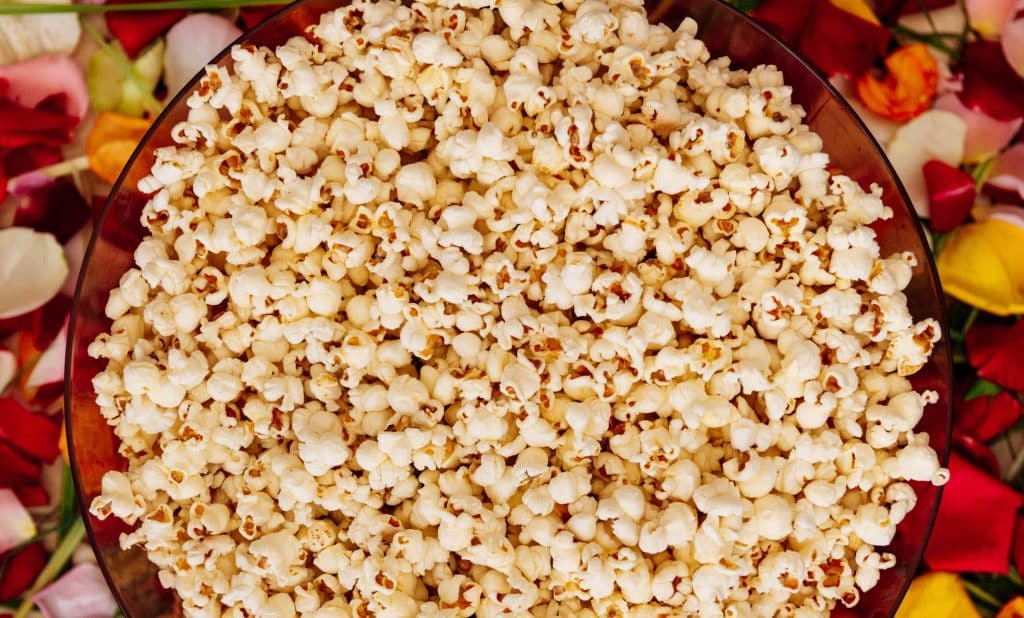
But can dogs digest corn kernels? No, unpopped popcorn kernels are highly dangerous to dogs because they’re hard to digest and cause an upset stomach in dogs.
Though popcorn is great for treats, it could also add to your dog’s daily calorie intake, which could make them obese or cause other diseases.
So, if you’re wondering how much popcorn is enough for your medium-large dog, a handful is enough. Popcorn could upset a dog’s stomach if, of course, it is flavored or given in large amounts.
Besides, popcorn could also get stuck in your dog’s teeth and cause gum disease or tooth decay. It’s great to examine your dog closely after he has eaten the treat to ensure there are no stuck pieces.
FAQs
Can Dogs Eat Raw Corn?
Raw corn may not be the best option for a dog, though it’s not toxic. Raw corn contains starches that aren’t broken down. Consequently, this makes it hard for your dog’s body to absorb the nutrients easily.
So, vets and dog nutritionists recommend cooking corn properly before feeding it to dogs.
Here's a great way to show your love for the hot dog sausage! Buy the branded hoodies today!
Dogs can eat unflavored or unseasoned corn unless they’re allergic to it. Cooked, plain corn is rich in proteins, fiber, vitamins, linoleic acids, and easy-to-digest starch.
However, corn husks and cobs are dangerous for dogs as they could choke or cause intestinal blockage. In addition, husks and cobs are indigestible and thus could cause stomach upset in dogs.
Always contact the vet to know if your dog is allergic to corn or if it’s safe to give it to him. Also, get to know how much he can eat in a day based on his health status.
